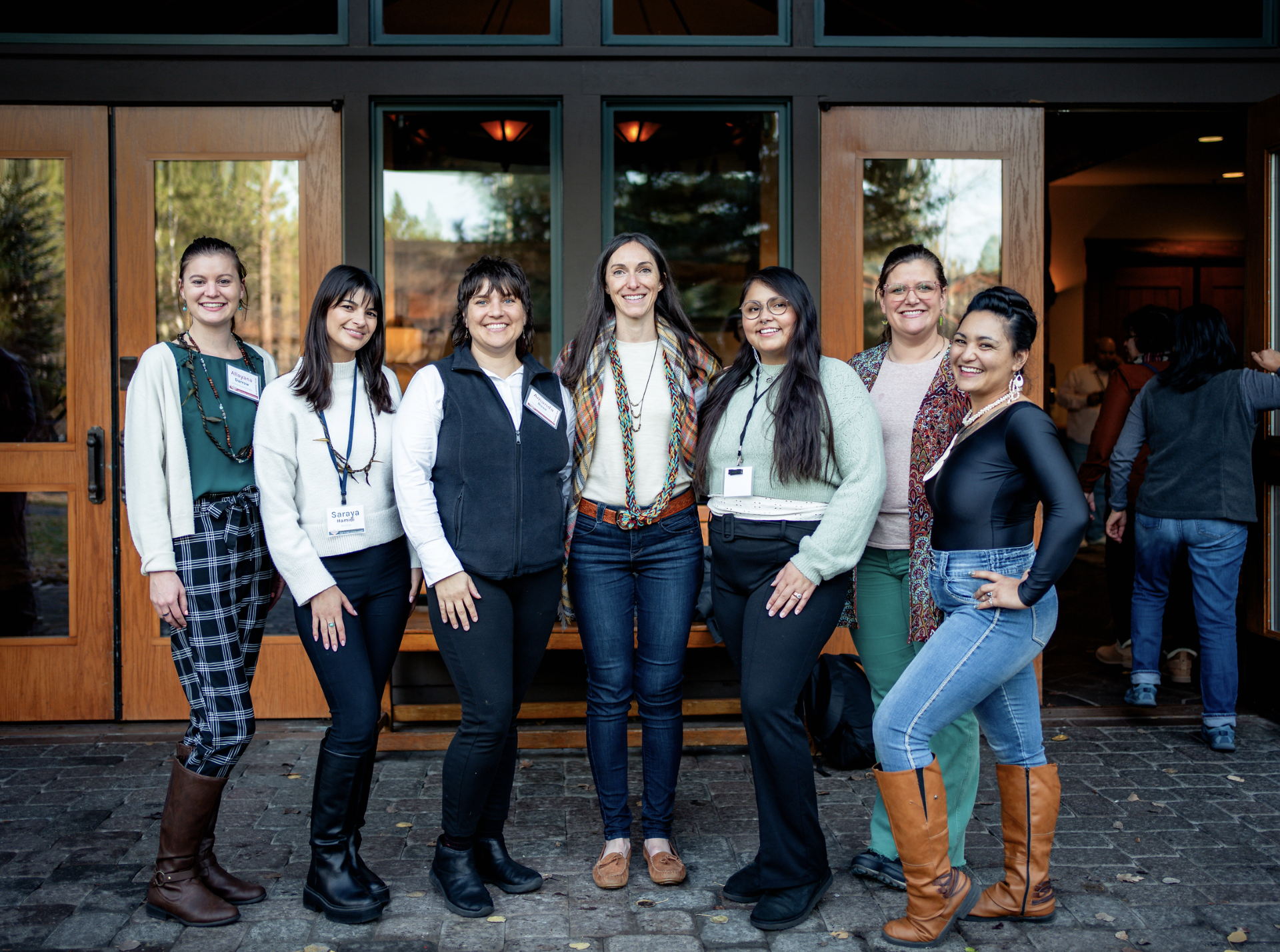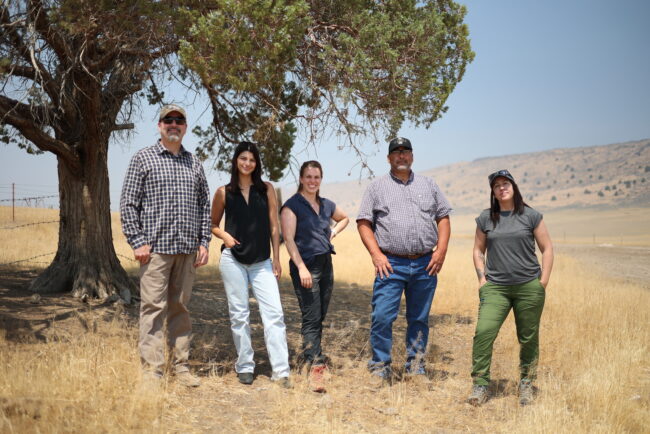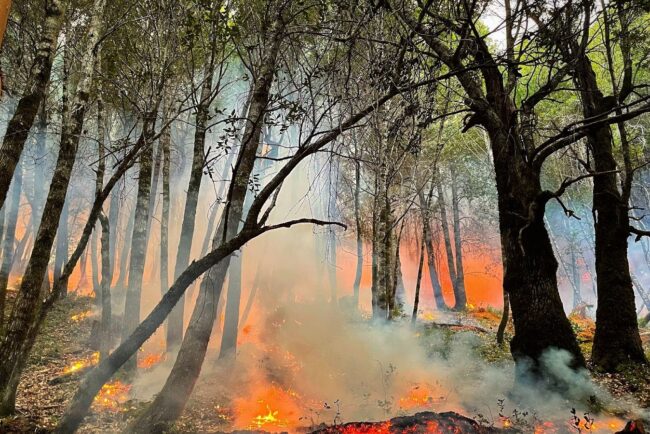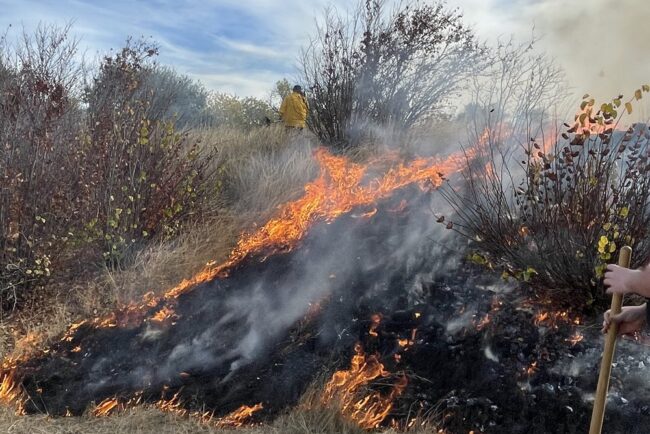Indigenous Partnerships
Sunriver, OR. Lomakatsi Inter-Tribal Summit Planning Team
Photo Credit: Ammon Cluff, Taylor Marie, and Lomakatsi Restoration Project

We aim to build meaningful relationships with Native Nations and Indigenous communities across the regions where we work, supporting the restoration of ceded and unceded Indigenous lands.
Promoting Co-Stewardship
Blue Forest recognizes that Traditional Ecological Knowledge (TEK), including cultural fire, is essential for forest resilience. Our Indigenous Partnerships Managers work with our Indigenous Science Advisor and partners to learn about TEK and support TEK-centered projects.
We collaborate with non-Native partners to expand partnerships with Native Nations and organizations, ensuring respect for Tribal sovereignty and self-determination by considering these factors in project development:
- Partners demonstrate respect for Tribal sovereignty and self-determination
- Partners are open to consulting and/or engaging with Native Nations and organizations on projects impacting public lands
Unlocking Funding
We partner with Native Nations, organizations, forestry crews, and cultural practitioners by offering support with:
- Funding and financing exploration
- Establishing connections with philanthropy
- Grant writing
- Letters of support
- Partnership building and communications
- Science and research collaboration
This technical assistance has helped partners secure millions in state and private funding.
If interested in learning more about how we partner with Native Nations and organizations, reach out to Indigenouspartnership@blueforest.org.
Related content
-

Insights
10.29.24
Applying Indigenous Values to Philanthropy
-

Insights
08.27.24
Resilient Roots: How the Modoc Nation is Healing Homelands and Community
-

Research Papers & Reports
10.29.24
October 2024 Science Corner | Bridging Fire Knowledge: Integrating Indigenous Stewardship and Western Science for Resilient Land Management
-

Insights
11.29.23
Nov. 2023 Science Corner | Cultural Burning: Traditional Ecological Knowledge in Practice